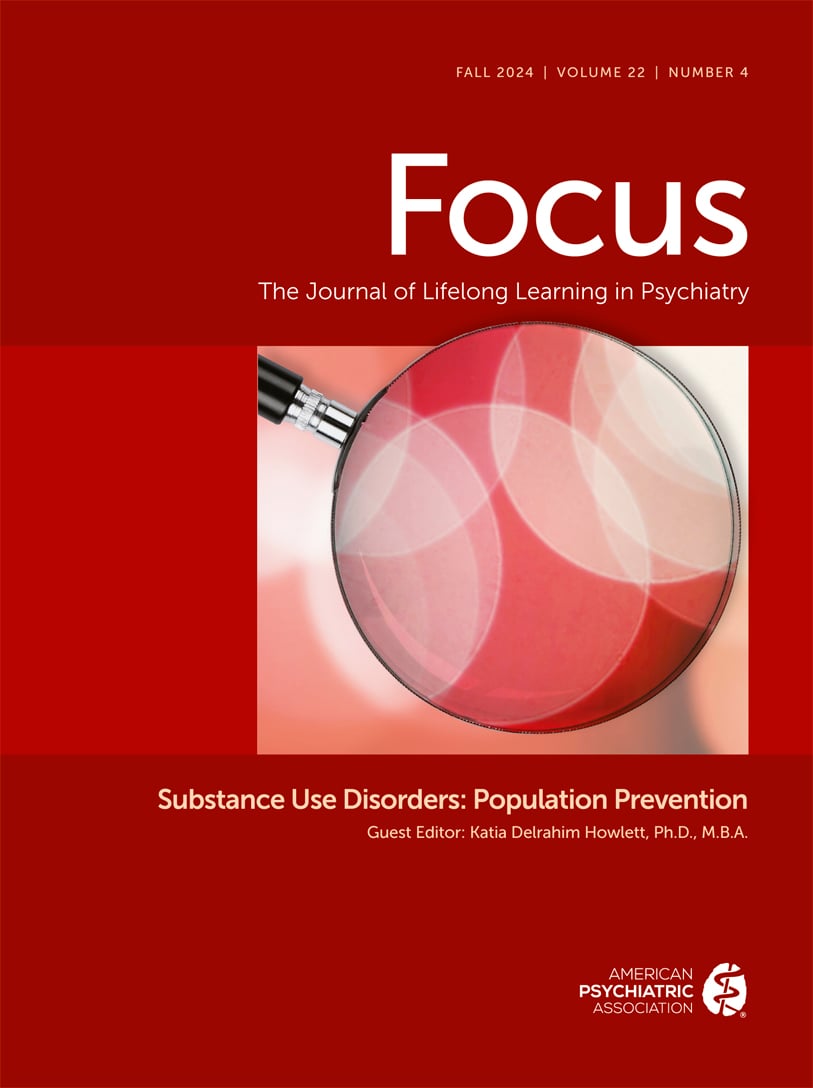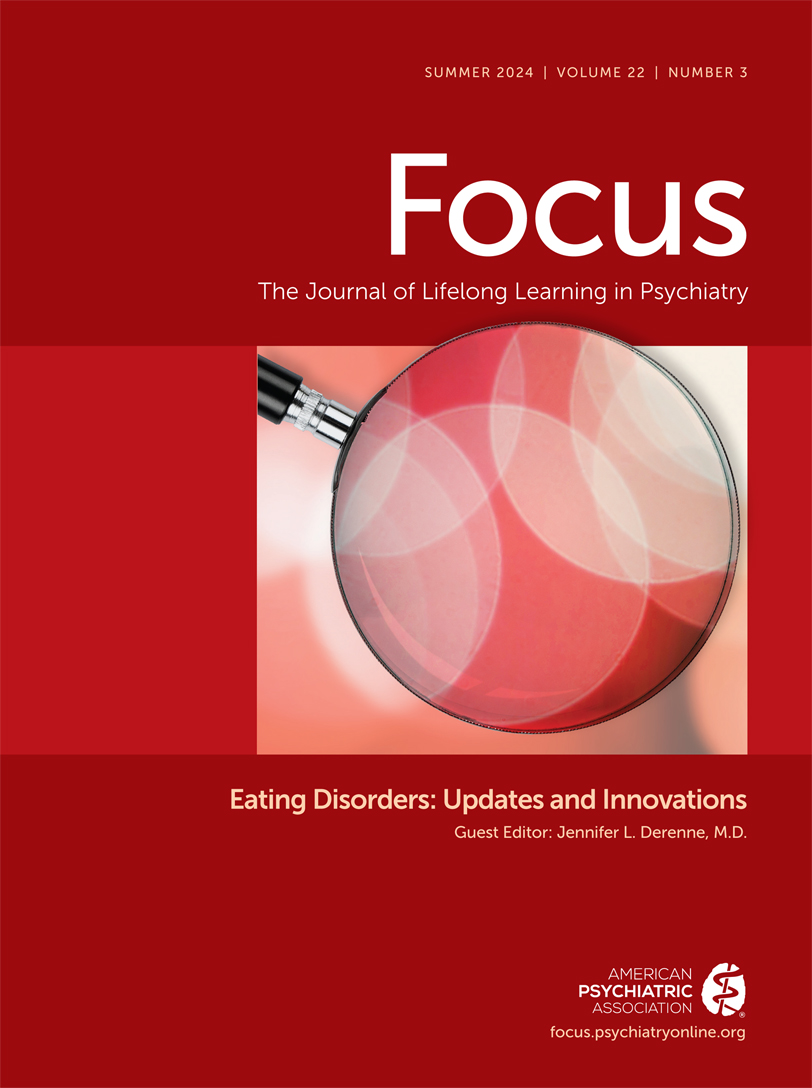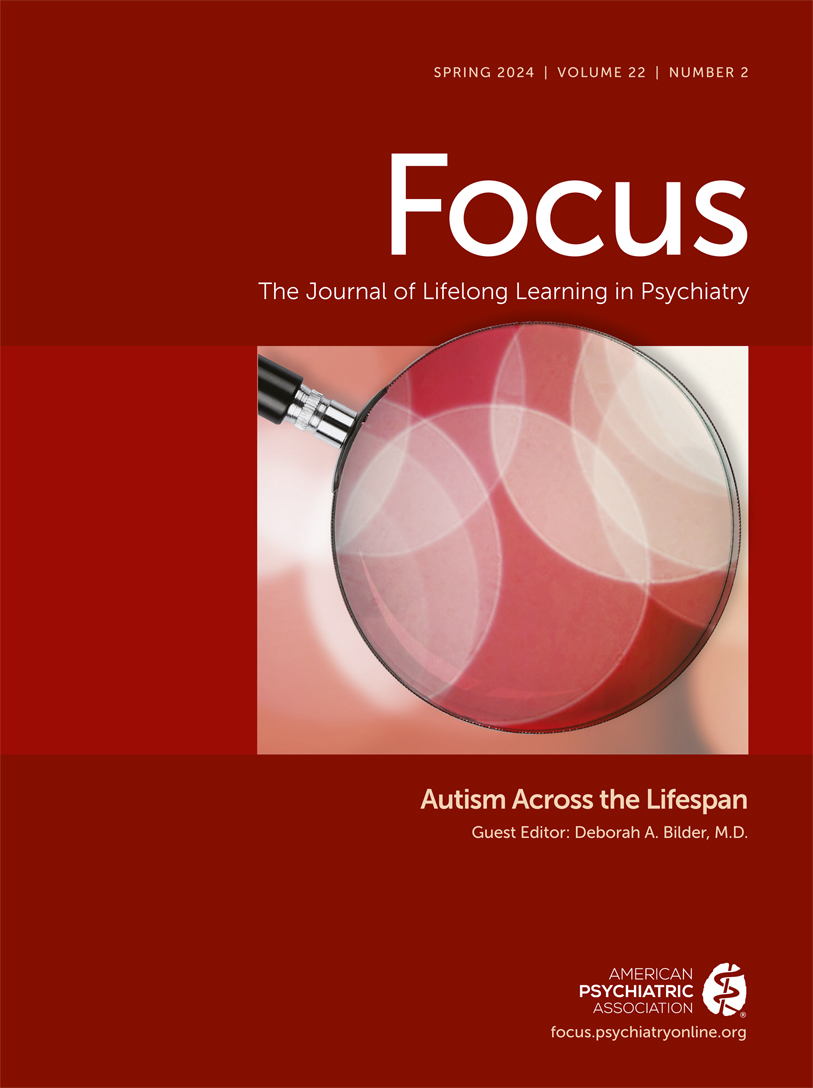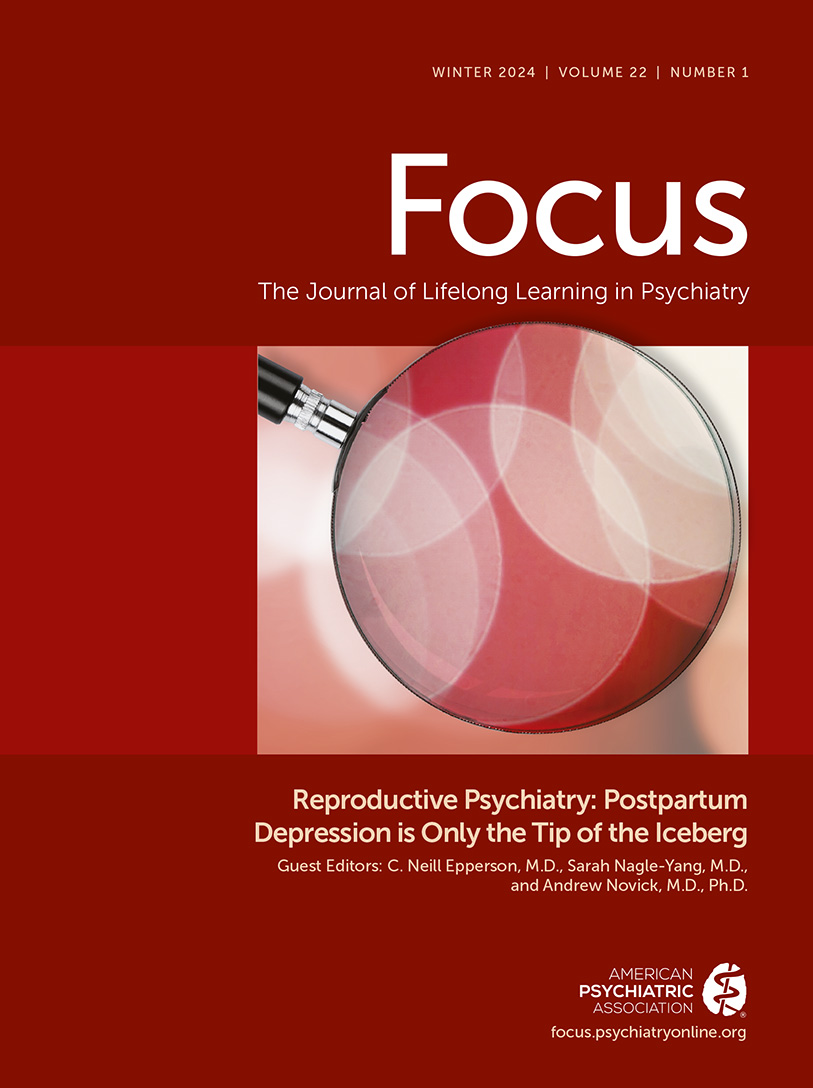Focus
- Volume 7
- Number 1
- January 2009
FROM THE GUEST EDITOR
CLINICAL SYNTHESIS
Publication date: 01 January 2009
Pages3–16To provide optimal care, the approach to psychiatric evaluation and diagnosis in older adults requires special attention to several issues. There are important biological, psychological, and social changes associated with either aging itself or with ...
https://doi.org/10.1176/foc.7.1.foc3Publication date: 01 January 2009
Pages17–27The prevalence of persistent pain increases with age. Painful conditions such as fibromyalgia, chronic low back pain, osteoarthritis, and neuropathic pain are frequently comorbid with depression. When comorbid, these conditions slow the treatment of each ...
https://doi.org/10.1176/foc.7.1.foc17Publication date: 01 January 2009
Pages28–35The accumulation of toxic products (TP) of the processing of the amyloid precursor protein is the likely initial event in a “cascade of events” that leads to Alzheimer's disease (AD). The immune system is, however, attracting the increasing attention of ...
https://doi.org/10.1176/foc.7.1.foc28PATIENT MANAGEMENT
Publication date: 01 January 2009
Pages38–45PATIENT MANAGEMENT PROBLEM: The following patient management problem was chosen to reinforce the facts and issues presented in this course. It emphasizes decisions facing the practicing physician. At each decision point determine how you, as the ...
https://doi.org/10.1176/foc.7.1.foc38INFLUENTIAL PUBLICATIONS
Publication date: 01 January 2009
Pages46–48This section contains a compilation of recent publications that have shaped the thinking in the field as well as classic works that remain important to the subject reviewed in this issue. This bibliography has been compiled by experts in the field and ...
https://doi.org/10.1176/foc.7.1.foc46Publication date: 01 January 2009
Pages53–63(Reprinted with permission from Fearing MA, Inouye SK: Delirium, in The American Psychiatric Publishing Textbook of Geriatric Psychiatry. Edited by Blazer DG, Steffens DC. Washington, DC, American Psychiatric Publishing, 2009, pp 229–241)
https://doi.org/10.1176/foc.7.1.foc53Publication date: 01 January 2009
Pages64–78Background: Mild cognitive impairment and cognitive impairment, no dementia, are emerging terms that encompass the clinical state between normal cognition and dementia in elderly people. Controversy surrounds their characterization, definition and ...
https://doi.org/10.1176/foc.7.1.foc64Publication date: 01 January 2009
Pages79–87Objective: Several predictors of treatment response in late-life depression have been reported in the literature. The aim of this analysis was to develop a clinically useful algorithm that would allow clinicians to predict which patients will likely ...
https://doi.org/10.1176/foc.7.1.foc79Publication date: 01 January 2009
Pages88–97The convergence of the aging of our society, the increase in blended families, and an enormous intergenerational transfer of wealth has greatly expanded the incidence and importance of capacity assessment of older adults. In this article we discuss the ...
https://doi.org/10.1176/foc.7.1.foc88Publication date: 01 January 2009
Pages98–105Among the most common complaints of older adults are difficulty initiating or maintaining sleep. These problems result in insufficient sleep at night, which then results in an increased risk of falls, difficulty with concentration and memory, and overall ...
https://doi.org/10.1176/foc.7.1.foc98Publication date: 01 January 2009
Pages106–117Objective: To review the research on the epidemiology, risk and resiliency, assessment, treatment, and prevention of late-life suicide. Method: I reviewed mortality statistics. I ...
https://doi.org/10.1176/foc.7.1.foc106Publication date: 01 January 2009
Pages118–136Depression is perhaps the most frequent cause of emotional suffering in later life and significantly decreases quality of life in older adults. In recent years, the literature on late-life depression has exploded. Many gaps in our understanding of the ...
https://doi.org/10.1176/foc.7.1.foc118Publication date: 01 January 2009
Pages137–150Objective: There is no consensual definition of “successful aging.” Our aim was to review the literature on proportions of subjects meeting criteria and individual components of definitions of successful aging as well as correlates of these definitions. ...
https://doi.org/10.1176/foc.7.1.foc137Past Issues
View Issues Archive
Vol. 22 | No. 4

Vol. 22 | No. 3

Vol. 22 | No. 2
